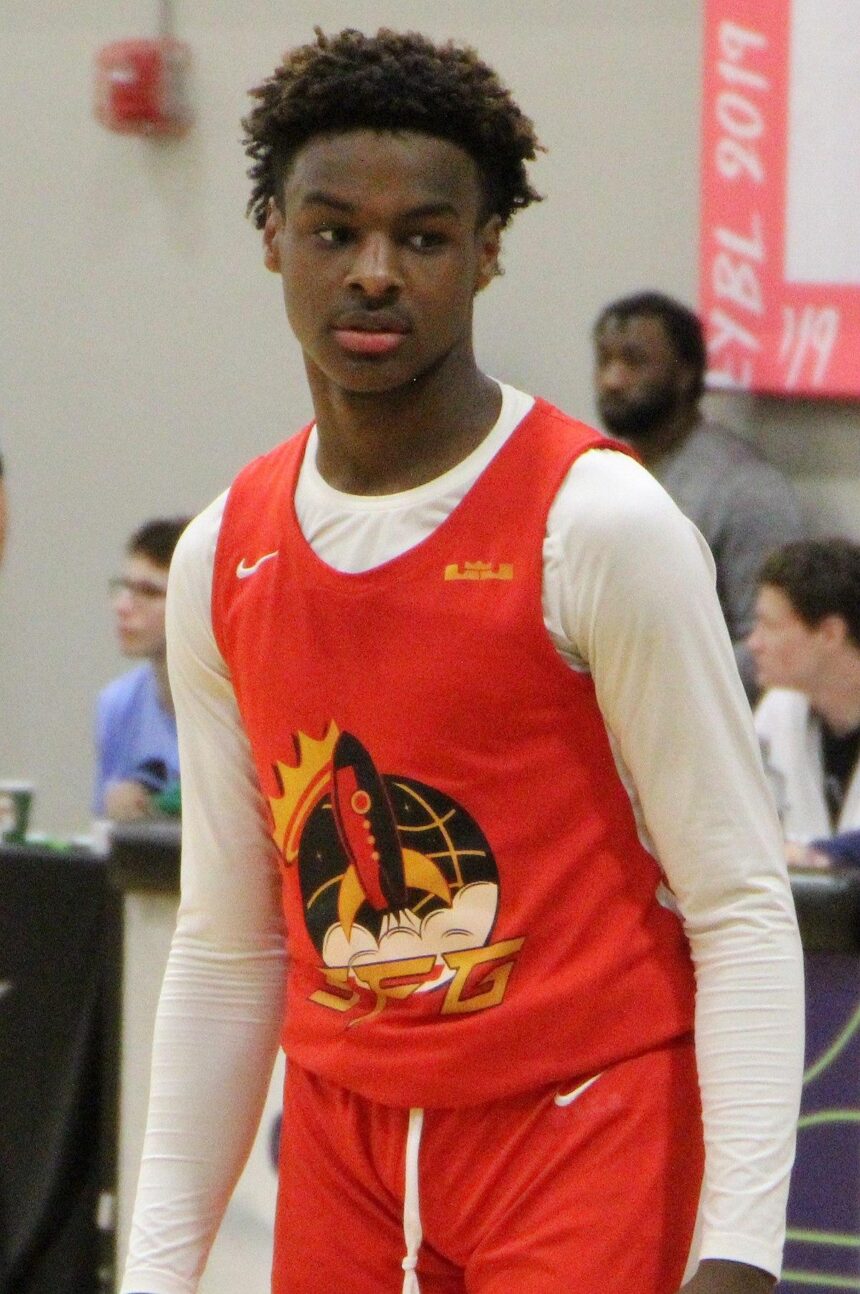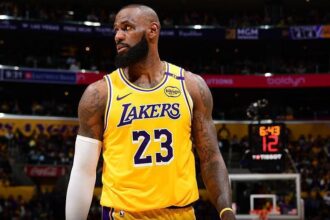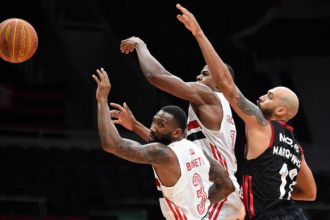In a move that has captured the attention of basketball fans and analysts alike, Bronny James, the eldest son of NBA superstar LeBron James, has officially signed with the Los Angeles Lakers. This development not only marks a significant milestone in Bronny’s burgeoning career but also ignites a renewed conversation about nepotism within the league. As the NBA navigates the complexities of legacy, talent, and opportunity, Bronny’s addition to the storied franchise raises questions about the influence of familial connections in professional sports. With debates intensifying around privilege versus merit, this article delves into the implications of Bronny’s transition to the Lakers and what it may mean for the future of the NBA.
Bronny James Signaling a New Era for the Lakers and the NBA
With Bronny James officially joining the Los Angeles Lakers, the conversation has shifted dramatically within the basketball community. His entry not only underscores the profound influence of family legacy but also marks a significant juncture for the franchise. The son of NBA icon LeBron James brings a fresh wave of enthusiasm and heightened expectations. As Bronny steps onto the court, the Lakers could be poised for a renaissance characterized by both competitive vigor and generational crossover appeal. The question now looms: can the Lakers harness this momentum to reclaim their storied status in the league?
The debate surrounding nepotism in the NBA has gained traction, raising eyebrows among commentators and fans alike. While some argue that Bronny’s talent deserves recognition on its own merits, others highlight the privileges afforded by his lineage. This situation has sparked discussions that extend beyond Bronny, touching upon issues of equity and fairness in a league where family ties can often open doors. Key points include:
- The balance of heritage and individuality: How will Bronny carve his path separate from his father’s legacy?
- Pressure of expectations: Will he thrive under the weight of his family’s reputation?
- Implications for franchise strategy: How does his joining affect team dynamics and other rookies?
| Aspect | Bronny’s Impact |
|---|---|
| Potential Influence | Generational shift in fan engagement |
| Team Morale | Boosted by legacy connection |
| Media Attention | Heightened scrutiny on performance |
Examining the Implications of Nepotism in Professional Sports
The recent announcement of Bronny James signing with the Los Angeles Lakers has reignited a complex discussion regarding nepotism in professional sports. With Bronny being the eldest son of NBA legend LeBron James, many analysts and fans are questioning the merits of his selection. Critics argue that his association with a high-profile player offers him an advantage over other equally qualified candidates. Proponents, however, assert that Bronny’s talent and work ethic stand on their own, deserving recognition beyond his father’s legacy.
To understand the broader implications of this phenomenon, it’s essential to consider the following points:
- Talent vs. Legacy: Is athletic prowess overshadowed by family connections?
- Marketability: Do teams prioritize players with star family ties for enhanced visibility?
- Equity among Players: How does nepotism impact the opportunities available to lesser-known athletes?
The NBA, known for its highly competitive nature, faces a pivotal moment as this debate unfolds. The league’s ability to balance legacy and meritocracy will be essential as it navigates the evolving landscape of professional sports. As Bronny steps onto the court, he not only carries the weight of his name but also a multitude of expectations that highlight the ongoing tension between familial advantage and individual achievement.
Strategies for Ensuring Fair Evaluation of Young Talent in the League
As the debate surrounding the potential nepotism in the NBA intensifies with Bronny James’s recent signing to the Los Angeles Lakers, it becomes crucial to establish strategies that promote an equitable assessment of young talent. Evaluating players solely based on legacy can hinder the growth of the sport and the development of emerging stars. To foster fairness, teams can implement several key practices:
- Transparent Scouting Reports: Providing clear and consistent criteria for player evaluations to ensure that all talent is assessed on merit.
- Independent Evaluation Panels: Utilizing third-party experts to review player performances, mitigating biases that may arise from personal connections.
- Performance Metrics: Relying on statistical data and analytics to inform decisions, rather than subjective opinions, helps create objective benchmarks for talent assessment.
Moreover, teams should focus on creating a culture that values hard work and perseverance among all players, independent of their lineage. A mentorship program can be an effective way to allow younger players to learn from veterans, ensuring that every athlete has a fair chance to showcase their abilities, regardless of familial ties. By embracing these initiatives, the NBA can strengthen its commitment to a fair and inclusive environment, where talent, rather than legacy, shines through.
To Wrap It Up
As Bronny James officially joins the ranks of the Los Angeles Lakers, the basketball world finds itself at a crossroads, grappling with the implications of nepotism in a league that values meritocracy. While many fans celebrate the opportunity for LeBron James’s son to follow in his father’s illustrious footsteps, critics argue that his entry raises questions about fairness and the broader dynamics of talent evaluation in professional sports. This development not only sets the stage for a new chapter in Lakers history but also ignites ongoing conversations about privilege, opportunity, and the nature of success in the NBA. As Bronny navigates his career, the discourse surrounding familial connections in sports is sure to intensify, inviting both support and scrutiny from a passionate fanbase. The coming seasons will reveal how Bronny’s talents translate to the professional stage, yet the debate surrounding his ascent is likely to resonate far beyond the court.













